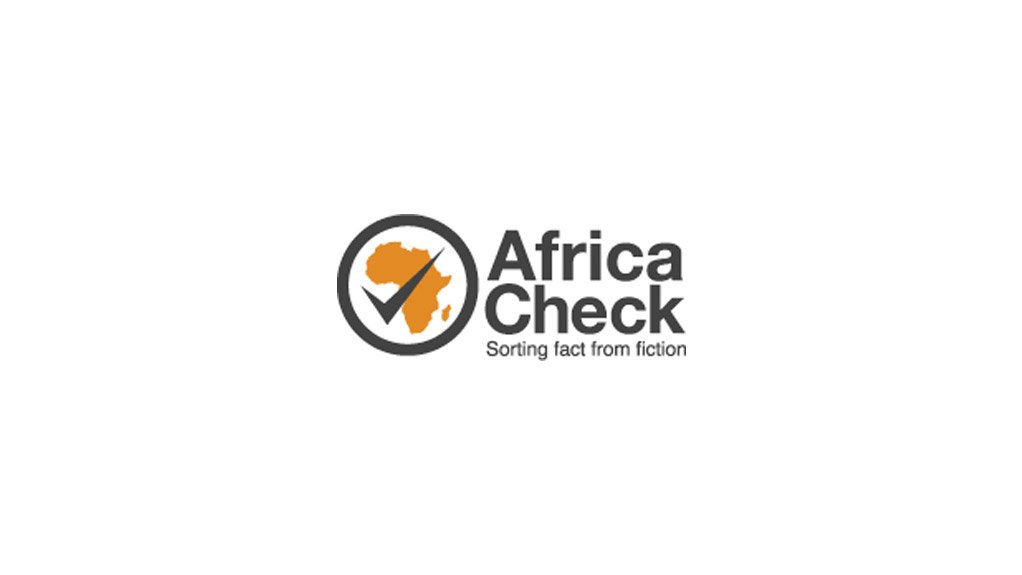The former governor of Nigeria's Lagos state Babatunde Raji Fashola was among the dignitaries who addressed new graduates of the University of Lagos in January 2025. The university held its 55th convocation ceremonies from 13 to 17 January.
During his speech, Fashola claimed that remittances from the diaspora amounted to 4% of Nigeria’s gross domestic product (GDP) in December 2024.
“If you use your search engine and enter Detty December, you will see an entry by Wikipedia; they’re already monitoring what’s happening. So they found out that in the month of December alone, remittances from the diaspora is already equivalent to 4% of Nigeria’s GDP,” he said.
“Detty December” refers to end-of-year festivities in Nigeria, including social gatherings, parties and concerts. Diaspora remittances refer to the money migrants send to their home countries while employed and residing abroad.
Fashola urged Nigerians to tap into this phenomenon as a developmental opportunity.
But did remittances from December 2024 equal a whopping 4% of Nigeria’s GDP? We examined the data.
Claim traced to 2021 news article
Africa Check has asked Fashola for the source of his claim and will update this report with his response.
Following his instructions in his speech, we searched the phrase “Detty December” and clicked on the Wikipedia entry he referred to. It says: “The World Bank reports that remittances for the Nigerian diaspora during this period [Detty December] account for 4% of Nigeria’s GDP.”
However, the entry, in turn, cited a 2021 article by the Guardian, which reported that according to the World Bank, diaspora remittances to Nigeria amounted to 4% of Nigeria’s GDP in 2020.
Wikipedia is a free and open-source encyclopaedia maintained by volunteers on the internet. For this reason, it is not considered a reliable source. But what do more accurate sources tell us about remittances for December 2024?
Data for December 2024 not yet available
Gross domestic product is the total monetary value of all finished goods and services produced within a country’s borders in a specific period. It is a broad measure of a country’s overall economic activity.
Data on Nigeria’s 2024 GDP is not yet available. And the Central Bank of Nigeria (CBN) only has remittance data from January to October 2024. The bank's governor announced that over those 10 months, US$4.22-billion in remittances were received. This was nearly double the $2.62-billion received during the same period in 2023, he said.
In 2023, the World Bank estimated Nigeria’s GDP at $363.85-billion.
‘Fashola’s statement warrants scrutiny’
Basil Abia is an economist and the co-founder of Veviv Africa, a data insights company. He told Africa Check that Fashola's statement warranted scrutiny.
“If we consider the 2023 GDP of $362.81-billion, 4% would amount to approximately $14.5-billion. Given that total remittances for the first 10 months of 2024 were reported at $4.22-billion, it is improbable that December alone accounted for $14.5-billion. This discrepancy suggests that the reported figure may be an overestimation or possibly a misinterpretation,” Abia said.
(Note: Abia uses a 2023 GDP figure of $362.81-billion, which is slightly less than the World Bank’s.)
The above graph shows that over the past four years, total remittances into Nigeria per year have amounted to between 4% and 5% of the country’s GDP.
Important to ‘consider broader economic context’
Ijaya Gafar, a professor of development economics at the University of Ilorin in Nigeria, told Africa Check that any figure that did not translate to the improvement of Nigerians was unhelpful.
“We do not have a structure that addresses diaspora remittances. How are the remittances kept or used? How do we measure the impact of remittances? Where are the schools, hospitals, and other structures built with the remittances?
“The government has always brought figures to make us think they are working,” said Gafar.
Benedict Akanegbu, a professor of economics at Nile University of Nigeria, told Africa Check that an increase in diaspora remittances is good for the nation.
“Suppose there is a significant increase in diaspora remittances relative to Nigeria’s overall GDP; more money will be in circulation, resulting in more jobs and increased income for the people. That translates to economic growth. In addition, ways to keep it increasing should be encouraged too.”
He acknowledged, however, that remittances from the diaspora in November and December would not have climbed so much.
“I doubt that the remittances for November and December would equal $14.5-billion if the CBN’s reported number for January to October was $4.22-billion. Remittances for these two months could not have totalled $14.5-billion, although they are frequently significant.”
Abia said that while both the tourism sector and diaspora remittances played vital roles in Nigeria’s economy, it was essential to “critically assess reported figures and consider the broader economic context when evaluating their impact”.
Conclusion: Ex-governor Fashola’s diaspora claim is unsupported
Former Lagos governor Babatunde Fashola recently claimed that December 2024 remittances from Nigeria’s diaspora were equivalent to 4% of the country’s GDP. He named Wikipedia as his source, which in turn relied on a news article published in 2021.
Available data shows that total remittances into Nigeria per year have amounted to between 4% and 5% of GDP. While complete data for remittances and GDP in 2024 is not yet available, experts said it was, therefore, unlikely that Fashola’s figure for December was correct.
This report was written by Africa Check., a non-partisan fact-checking organisation. View the original piece on their website.











